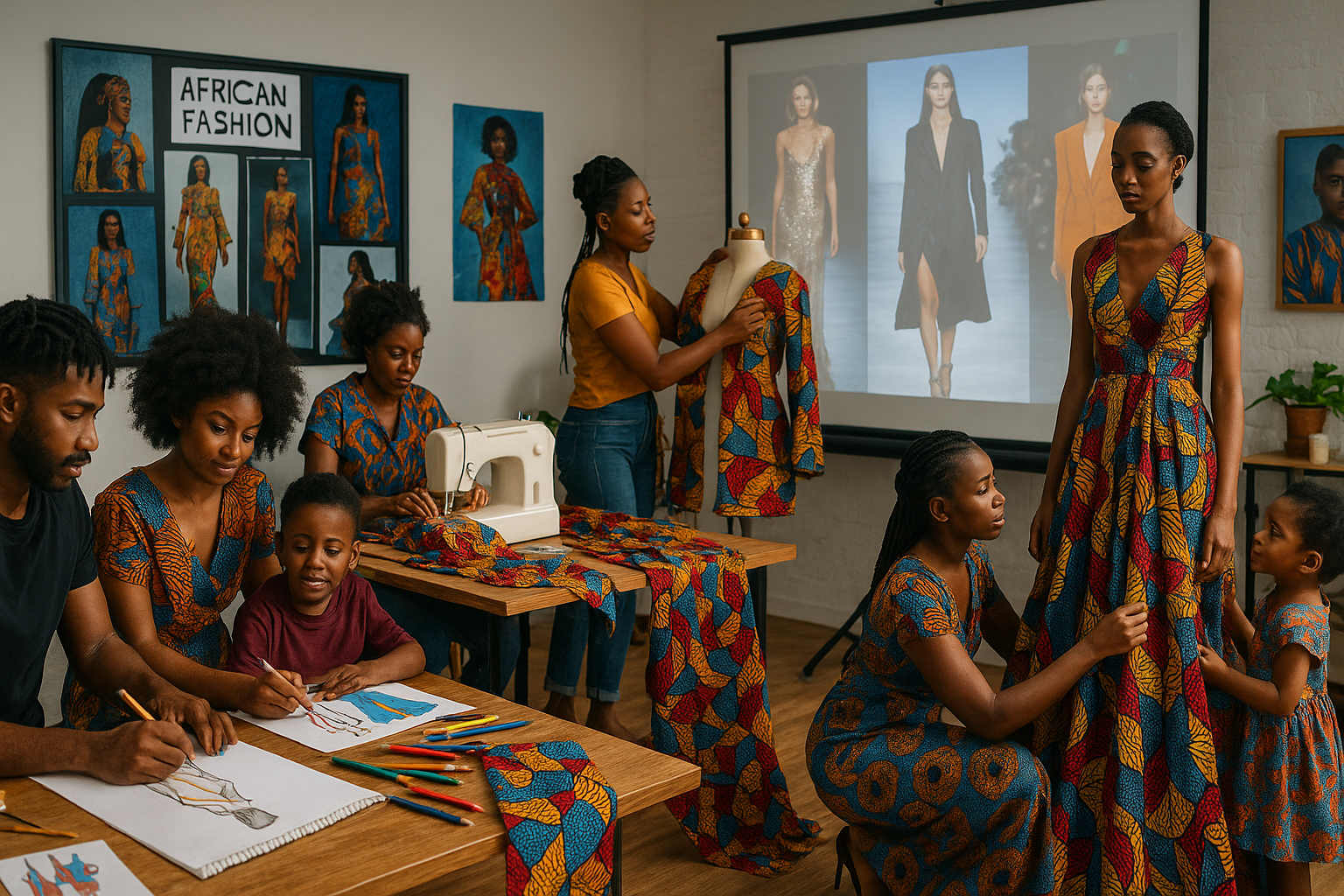
Learning Reflections on the Fashion Industry – Local & International Empowerment for 21st-Century Integration
As we navigate the ever-evolving landscape of the 21st-century fashion industry, it’s essential for both local and international creatives to reflect on their learning journey—recognizing the progress made, the opportunities seized, and the potential that lies ahead. At African Cultural Fashion Heritage and through our platforms such as Maryland Fashion Week & Fashion Week Maryland (MFWFWM), we are committed to fostering a dynamic learning environment that empowers fashion professionals and integrates them meaningfully into the global fashion system.
Key Learning Reflections:
1. Embracing Global Trends with Local Roots
Our designers and artisans have learned to blend global fashion trends with deeply rooted African, Caribbean, and diaspora traditions. This unique fusion not only strengthens cultural identity but also positions our creatives as global contributors with distinctive styles.
2. Business Literacy & Entrepreneurship
Creatives must be more than artists—they must also be entrepreneurs. Workshops and seminars offered under our initiatives equip them with essential business skills: branding, marketing, e-commerce, pricing strategies, and financial literacy—transforming talent into sustainable enterprises.
3. The Power of Storytelling Through Fashion
Our creatives have come to understand that fashion is a language. From the textures of kente to the structure of modern Afro-fusion wear, designers are using clothing to tell stories of migration, heritage, resilience, and innovation.
4. Leveraging Technology & Digital Media
Through social media, digital portfolios, and virtual runways, creatives are learning to expand their reach beyond borders. Integration into the 21st-century fashion world requires digital fluency, and we are proud of how many of our participants are embracing these tools.
5. Sustainability & Ethical Fashion
Locally and globally, there’s a shift toward conscious fashion. Our designers are increasingly prioritizing sustainable materials, ethical labor practices, and circular economy principles—making African and Black fashion a beacon of responsibility.
Empowerment Through Integration:
We believe that empowerment in fashion starts with access—to knowledge, to networks, and to platforms. Our learning initiatives aim to:
Connect fashion creatives with mentors, buyers, and collaborators across continents.
Provide hands-on experiences through fashion shows, exhibitions, and pop-up markets.
Encourage cultural exchange and inclusion within the broader global fashion industry.
As we look toward the future, we will continue to create pathways for designers, models, stylists, artisans, and fashion entrepreneurs from marginalized communities to thrive. The journey is not just about inclusion—it’s about influence, innovation, and ownership.
The future of fashion is inclusive, tech-driven, and culturally rich—and we are building it, together.
